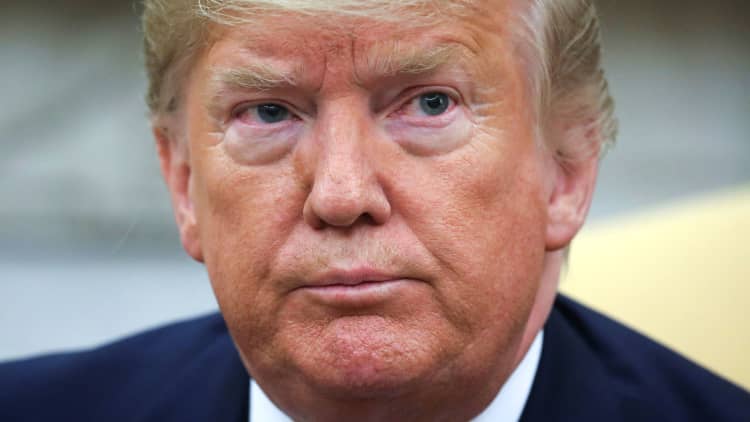Curtis Flowers walked free from jail on Monday after a Mississippi judge set his bail, five months after the U.S. Supreme Court reversed his latest murder conviction due to racial discrimination by a prosecutor who methodically excluded black jurors in six separate trials of Flowers for the same crime.
The 49-year-old Flowers, a black man, has been in prison for more than 22 years, much of that time on death row. He had never been granted bail in the case before.
Judge Joseph Loper set bond of $250,000 for Flowers after a hearing Monday morning in Winona, Mississippi. Loper also ordered that when Flowers posts bond, he be electronically monitored.
His case was profiled by the podcast "In the Dark," which uncovered new evidence suggesting he was innocent of the slayings of four people at the Tardy Furniture Store in Winona in 1996. The store is less than one mile from the Montgomery County Courthouse, where Flowers' bail hearing was conducted.
The podcast also detailed how the prosecutor in the case, Doug Evans, repeatedly sought to keep blacks off juries considering Flowers' fate.
"In the Dark" also found that Evans had a pattern of using peremptory challenges during jury selection in other cases to keep blacks off juries at a much higher rate than whites.
Evans, who did not attend Monday's bail hearing, has not said whether he plans to retry Flowers, who has been convicted four times of the murders. All four convictions were reversed on appeal, while two other trials ended in mistrials.
Flowers' lawyer Rob McDuff argued that he was entitled to bail due to a Mississippi law that requires bail after two mistrials for a capital murder case.
McDuff, in a prepared statement released after the bail ruling, called on prosecutors to drop the case:
"Given the evidence of his innocence that continues to surface as time goes by, as well as his excellent prison conduct and the fact that he has no criminal record, bail was required by the law under the unusual circumstances of this case," McDuff said. "We are very pleased that he will finally have some measure of freedom and be able to spend time with his wonderful family. At the beginning of the new year, we will move forward with our efforts to obtain a dismissal of the charges. This has been a long and costly process, and there is no need to continue wasting taxpayer money on this misguided prosecution that has been plagued by misconduct and racial discrimination."
Loper, after setting bond for Flowers, issued "words of reprimand for Evans, who the judge said was expected to be at the hearing," according to the Clarion Ledger newspaper.
Loper said it was a "troubling fact" that the state of Mississippi had taken no action to further the case, ignoring a court order for the prosecutor to file written responses," the Clarion Ledger reported.
In June, Supreme Court Justice Brett Kavanaugh, who wrote the court's 7-2 opinion overturning Flowers' most recent conviction in 2010, said that the judge who presided at the sixth trial committed "clear error" by concluding that Evans' strike of a black juror was not motivated by discrimination.
Kavanaugh said Evans showed a "relentless, determined" effort to rid the jury of black members and try Flowers "ideally before an all-white jury."
"Equal justice under law requires a criminal trial free of racial discrimination in the jury selection process," Kavanaugh wrote in the decision.
Evans had barred 41 out of 42 potential black jurors from Flowers' trials, including 5 out of 6 potential black jurors in the sixth trial, the Supreme Court ruling noted.
The Supreme Court held in the 1986 case Batson v. Kentucky that purposeful racial discrimination in the selection of a jury is unlawful.



